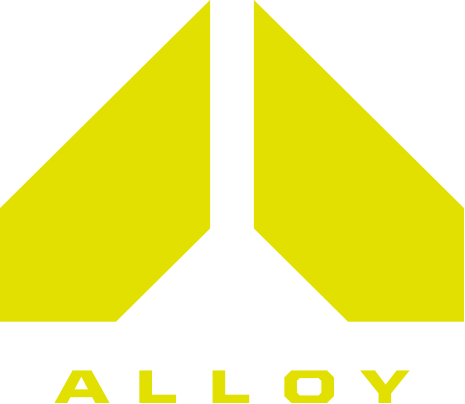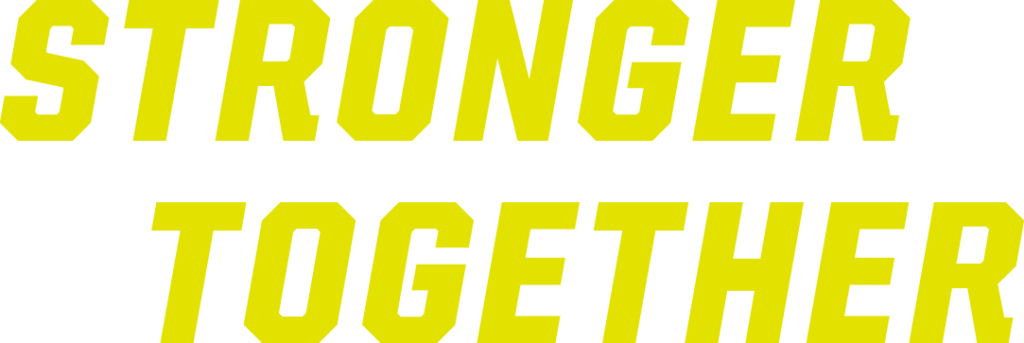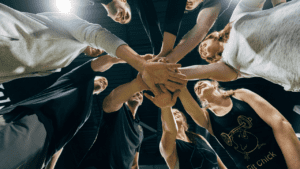Unpacking the science of muscle recovery, we examine the critical role recovery has with fitness and wellness regimen. Muscle recovery is an essential, yet often overlooked, aspect of an effective fitness regimen. Alloy Personal Training develops an individualized fitness regimen for each client, including rest and recovery suggestions to maximize results.
Let’s discover how recovery can include muscle recovery techniques, sleep, nutrition, and mental health strategies to significantly enhance the client’s fitness and wellness journey.
Understand The Science Of Muscle Recovery
Recovery is not just a passive phase in your fitness journey; it’s an active component that fuels your progress, resilience, and overall health. It’s the time when the body repairs itself, making it stronger and more capable of handling physical stress. Ignoring recovery can lead to a plateau, injuries, and even burnout, undermining the very goals we strive to achieve.
Muscle recovery is pivotal after any workout, allowing for tissue repair, strength building, and reduction of inflammation. Strength training builds muscle by creating micro-tears in the muscle fibers during exercise; as these tears heal, the muscles become stronger and more resilient. This process, driven by the body’s natural repair mechanisms, results in increased muscle mass and strength over time.
Delayed Onset Muscle Soreness (DOMS) is a common experience after engaging in intense physical activity, especially if the exercise is unfamiliar or particularly strenuous. Unlike immediate muscle soreness, DOMS typically emerges 24 to 72 hours post-workout. This phenomenon is attributed to the micro-tears in muscle fibers incurred during exercise, leading to inflammation and a subsequent increase in soreness as the body initiates the repair process.
Alleviating the discomfort associated with DOMS involves several strategies aimed at enhancing recovery and reducing inflammation. These techniques, when combined, can significantly mitigate the effects of DOMS, making the recovery process more comfortable and efficient.
Muscle Recovery Techniques
Here are some effective techniques that embody the Alloy Personal Training approach.
1. Active Recovery
Incorporating low-intensity light exercise activities on rest days, such as walking or gentle yoga, can enhance blood flow and help remove waste products, aiding muscle repair, easing muscle soreness.
2. Proper Nutrition for Recovery
After a workout, eating the right mix of proteins and carbs is key for muscle repair and refueling energy.
- Omega-3s like salmon and walnuts help to reduce inflammation.
- Lean Proteins like chicken, fish, or tofu are needed for muscle repair. See this protein article.
- Whole Grains in the form of complex carbs like quinoa and brown rice help to replenish energy stores.
- Fruits and Vegetables like berries, broccoli, and leafy greens reduce muscle soreness..
- Nuts and Seeds for protein and muscle function.
- Dairy or Alternatives for bone health and muscle function.
- Healthy Fats in the form of avocado, nuts, or olive oil ease soreness
- Spices like turmeric and ginger also ease soreness.
Eating these foods helps support muscle repair, reduce inflammation, and improve recovery. Check out this article on nutrition.
3. Hydration for Recovery
Staying hydrated is crucial for recovery, helping to transport nutrients and remove toxins. Here’s how to do it right.
- Drink 16-24 ounces of water for every pound lost during exercise. Weigh yourself before and after workouts to measure.
- Include electrolytes if you’ve had an intense or long session, through either sports drinks or a balanced meal.
- Add hydrating foods to your meal or snack post-workout, like cucumbers or oranges.
Listen to your body and drink as needed, watching for signs of dehydration. Don’t wait till you are thirsty to hydrate. Proper hydration helps speed up recovery and prepares you for your next workout.
4. Stretching and Mobility Work
Regular stretching and mobility exercises can enhance flexibility, reduce soreness, and improve overall performance.
5. Massage and Foam Rolling
These techniques can alleviate muscle tightness and soreness, promoting blood flow and aiding in the recovery process.
The Role of Sleep in Muscle Recovery
Sleep is the cornerstone of recovery. It’s during those precious hours of deep sleep that our bodies undergo the most significant recovery processes, including muscle repair, hormone regulation, and mental rejuvenation. Consistently getting 7-9 hours of quality sleep can dramatically improve your fitness results, energy levels, and overall health. Check out our top Sleep and Relaxation Techniques.
Mental Health Strategies: The Unseen Pillar of Recovery
Mental health is the silent partner in the recovery process. Stress, anxiety, and lack of motivation can all hinder physical recovery and performance. Incorporating mental health strategies into your recovery process is crucial.
- Mindfulness and Meditation: These practices can reduce stress, improve focus, and enhance overall well-being, making them a valuable addition to your recovery toolkit.
- Rest and Relaxation: Taking time to unwind and do activities you enjoy is vital for mental recovery, helping you maintain motivation and a positive outlook.
- Social Support: Engaging with a supportive community, whether it’s family, friends, or fellow fitness enthusiasts, can provide emotional support and motivation, enhancing your recovery process.
Holistic Integration Of Recovery With Fitness Regimen
Adopting a holistic approach to muscle recovery involves integrating physical, nutritional, and mental health strategies into your fitness regimen. At Alloy Personal Training, we emphasize the importance of listening to your body, customizing recovery techniques to suit your individual needs, and maintaining a balanced approach to fitness and wellness.
Remember, recovery is not a sign of weakness but a badge of honor. It signifies your commitment to taking care of your body and mind, ensuring longevity and sustainability in your fitness journey. By embracing the science of recovery, you’re not just recovering; you’re advancing towards your health and fitness goals with greater strength, resilience, and vitality.
As we conclude our exploration of the science of muscle recovery, it’s clear that this aspect of fitness is as critical as the workouts themselves. By prioritizing recovery, you’re investing in your body’s ability to perform, endure, and thrive. At Alloy Personal Training, we’re committed to guiding you through every step of your fitness journey, recovery included, with tailored advice, support, and motivation.
If you’re ready to elevate your fitness regimen with effective muscle recovery strategies or have any questions about integrating these practices into your routine, your Alloy trainer is here to help.
Remember, your wellness journey is a marathon, not a sprint, and every step towards recovery is a step towards your ultimate fitness goals.
Looking for more insights or personalized guidance? Feel free to reach out or visit us for a deeper dive into wellness and recovery. Your journey to a healthier, more vibrant life is just a conversation away.
Let’s continue to grow stronger, together.




